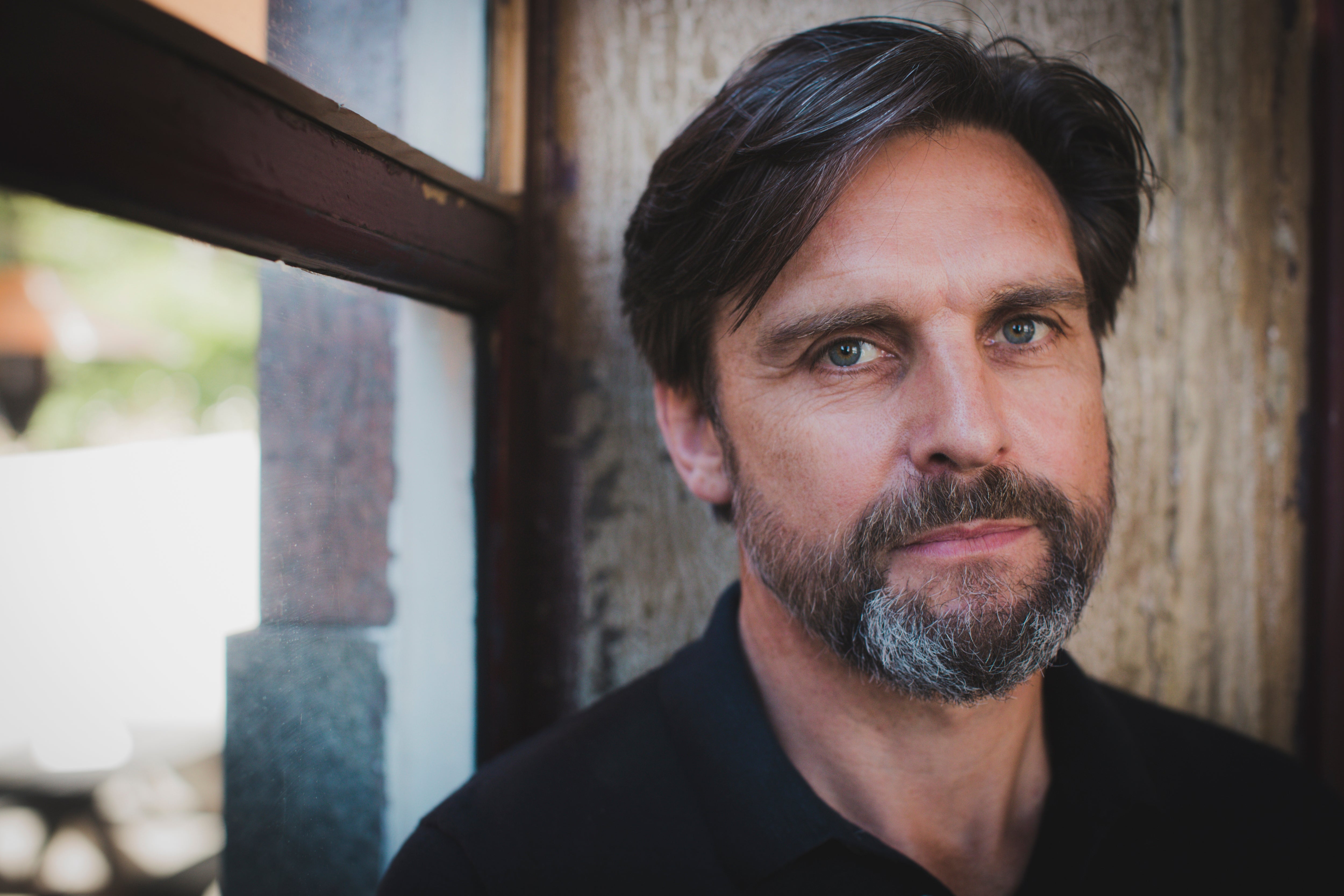Patriotism and posh boys: The books exposing the dark truth of UK private schools
The country’s elite institutions are under fire in a new spate of memoirs that criticise the privilege of receiving a costly education and question who gets to become leaders. Nick Duerden speaks to authors Richard Beard and Robert Verkaik


Early on in Sad Little Men, Richard Beard’s book on private school education, he writes: “This is a memoir about white middle-class public schoolboys. We have a reputation for a reason.”
The reputation, as he asserts both quickly and fulsomely over the course of his story, is a roundly negative one, freely disseminated by men who go through life not only with the sense of entitlement given to them by their education but also a certain emotional immaturity, and the capacity for an awful lot of bluff. It is the latter, Beard warns, that carries them on through their careers like a favourable wind, and of which everyone else should be wary.
“Boys are taught to be ambitious,” he says, “in whatever their profession. Every MP who came from a private school background, for example, is a failed prime minister.”
Though they followed the national curriculum fairly closely – with added Latin and Greek – private school students were more generally trained, Beard writes, for leadership, “or if not to lead then to earn. The most convincing reason to go to a private school remains to have gone to a private school.”
Beard’s account of his time at Pinewood in the west of England during the Seventies and Eighties – at the same time that David Cameron and Boris Johnson were also benefitting elsewhere in the UK from private schooling – reads as much as polemic as it does memoir. It’s a sober – and sobering – takedown of the damage such institutions do, and the subsequent havoc it wreaks, not just upon the individual but society at large.
“If people wonder quite how an individual like, say, Jacob Rees-Mogg can still exist in today’s world,” Beard says, of the MP who appears to be a throwback to an earlier age and a bygone era, “then that’s the public school education system for you.”
This is an institution where class and tradition runs so rampant, it remains largely impervious to thrusting modernity, to non-heteronormative mores, to a generation weaned on Love Island. Here, the empire is still routinely invoked, and Britain remains “Great”, patriotism as robust as it is on the football terraces.
Beard, who is 54 and has been writing books for three decades, chose now to expound upon this subject because he believes it to have a timely societal resonance: in the already bitter legacy of Brexit, for example, and in the governance of people who might not seem entirely up to the job.
“My book is a witness statement from the scene of a crime,” he says, smiling ruefully. “Having gone to a private school at exactly the same time as Cameron and Johnson did, I saw what they saw, and learnt what they learnt. I hope my book goes some way to explaining such a mindset, and why what’s happening in the country right now is happening.”
When I did go home for the holidays, I brought back sexist and classist attitudes, which undermined my mother. I’d no idea what I was doing
If private education speaks mostly, these days, to an increasingly rarefied demographic, then it nevertheless remains in rude health: all schools have long waiting lists, despite the fact that annual fees are around £30,000, while the average UK salary, as of 2020, is just over £31,000. A mere 7 per cent of the population today is privately educated, but graduates make up many of the top jobs: 65 per cent of judges, 62 per cent of armed forces personnel, almost half of all business leaders. A full 36 per cent have gone on to become cabinet ministers. David Cameron, who went to Heatherdown in Berkshire, and Boris Johnson, who went to Ashdown House in Sussex, both then attended Eton, and both ultimately rose to the top job. Not quite “World King”, but almost.
Beard was not typical private school fodder. His father was a builder from Swindon, but he hated his job and his social standing, and wanted better for his son. And so, aged seven, Beard was packed off to board, to learn to be “better”. He was miserable at Pinewood, lonely and homesick, but that was of little consequence there; alongside a classicist-leaning curriculum, pupils are taught the benefit of a stiff upper lip. “I hated what it made me become,” he says. “When I did go home for the holidays, I brought back sexist and classist attitudes, which undermined my mother. I’d no idea what I was doing.”
Though he was good in both the classroom and on the rugby field, he never fully acclimatised. Upon finishing school, Beard didn’t look back, and kept in touch with no one. By choosing writing as his career, he would have far less chance to rely upon the old boys’ network as he might have in other, perhaps cannier, career choices for boys with his “fortunate” start in life.
This didn’t mean that he didn’t still possess high ambition; privately educated types invariably do. “Oh, if I was going to be a writer, then I had to be a Nobel prize-winning writer.”
The Nobel has yet to materialise. “It took me quite a long time to get over those sorts of high ideals,” he laughs.

In his 2018 book, Posh Boys: How English Public Schools Ruin England, Robert Verkaik takes an in-depth look at the system: how it operates, and how it serves to keep the country in its state of imbalance.
Verkaik had previously spent time researching the subject of inequality, and wanted now to find its source. “When you go back to the beginning of a person’s life,” he says, “you find education. If everyone were given a fair chance to have the same education, we’d have a fairer society. But that isn’t happening, and not many people seem to want to discuss the apartheid of this system, how money alone can advance one child over the other.”
Verkaik himself attended a secondary modern. When, as an adult, he saw how public school alumni dominated so many sectors of the workforce, it began to rankle. “You realise that there are forces at play here that have little to do with natural ability. Wealthy people can’t have all the talent, can they?”
His book argues for the “slow and peaceful euthanasia” of private schools, to be replaced by a more level playing field, but he concedes this is unlikely to happen any time soon, irrespective of which party is in power. “Plenty of Labour politicians attended private school,” he says, among them Tony Blair and even “people’s champion” Jeremy Corbyn. Diane Abbott and Shami Chakrabarti both chose to educate their children privately.
Not many people seem to want to discuss the apartheid of this system, how money alone can advance one child over the other
Meanwhile, there are relatively few books that dare criticise the institution, something which makes Richard Beard’s Sad Little Men feel rather incendiary.
“At private school,” Beard explains, “you are taught not to snitch, and my book is 250 pages of snitching.”
Perhaps it’s like Las Vegas: what happens in private school tends to stay there?
Earlier this year, the journalist Musa Okwonga wrote his memoir, One Of Them, which was billed as the “first in-depth Eton College memoir to be published in the UK in nearly 50 years”. This isn’t entirely accurate for the simple reason that it isn’t particularly in-depth. Eton itself takes a rather secondary role to the engaging coming-of-age tale of a Ugandan immigrant whose intelligence won him a scholarship there. Though Okwonga does admit to finding it difficult to attend school reunions, convinced that “freelance writer” is hardly a captain of industry, he ultimately comes to its defence on the page. The overall sense is of punches obligingly pulled.
“When people criticise Eton to me,” he writes at one point, “I find myself defending the kind of people I knew there, the patient teachers and charismatic pupils.”
Someone else unlikely to denounce his privileged education is writer and PR consultant Saurav Dutt, a 38-year-old born in India but raised in Warwickshire, where he attended Rugby (noteworthy alumni: Neville Chamberlain, Lewis Carroll, Salman Rushdie). Dutt says that it was at an earlier comprehensive school where he felt stifled, and was the frequent recipient of racism. At Rugby, however, “I received the very best level of education, the support of my peers, and a real sense of encouragement to be the best I could”.
He initially went into law, and admits he found entry-level jobs difficult chiefly because the atmosphere was so unfriendly. But perhaps this is unavoidable for all such graduates, required as they are to mix with those they’ve previously been deliberately kept from: the hoi polloi.

“It is true that the more senior you become, the more you notice a definite shift in behaviour amongst your colleagues,” he concedes.
Like Okwonga, Dutt is protective of the institution, and is bemused that anyone would ever sneer at it. “There is a sense when you are going through the [education] process that society will reward you for the time and effort that has been put in,” he says, “but for the most part that hasn’t been the case. So you do feel a little resentful that society doesn’t see this distinction.”
He’s not suggesting, he adds, that the privately educated pupil is necessarily better, “but a lot has gone into this person, and that should, I think, be appreciated”.
Richard Beard believes otherwise. You finish his book convinced, as he is, that its manner of teaching, the way it bestows a sense of unearned supremacy, is ultimately harmful in ways both obvious and hidden. It’s in keeping things hidden that problems arise.
“They base their success on A-level results and public office jobs, and the fact that some go on to become famous,” he says, citing the actor Benedict Cumberbatch, who went to Harrow, “but there is also this huge in-between hinterland of frayed, raddled and unhappy people for whom the sort of performative confidence private schools teach you ultimately wears off. And what then? They’re left stranded, and ultimately miserable.”
And it is simply not true, he continues, that someone needs to have this kind of education in order to have the necessary confidence to lead in life. He references leaders from all walks of life, from all over the country, “people who do an amazing job not because they had a particular education, but because they know their stuff, and they have an authority that comes from that experience and knowledge – and the respect.”
Echoing Robert Verkaik, but probably not the current prime minister nor his earlier predecessor, Beard yearns for equal opportunity in pursuit of nothing more than a fairer society. A utopian ideal, in other words.
“But that’s how leaders should be chosen,” he stresses. “Not because they’ve been taught to have a sham confidence at schools most people couldn’t ever afford to attend. And I’d say it’s about time we saw through that.”
‘Sad Little Men’ by Richard Beard is published on 26 August
Join our commenting forum
Join thought-provoking conversations, follow other Independent readers and see their replies
Comments


Bookmark popover
Removed from bookmarks